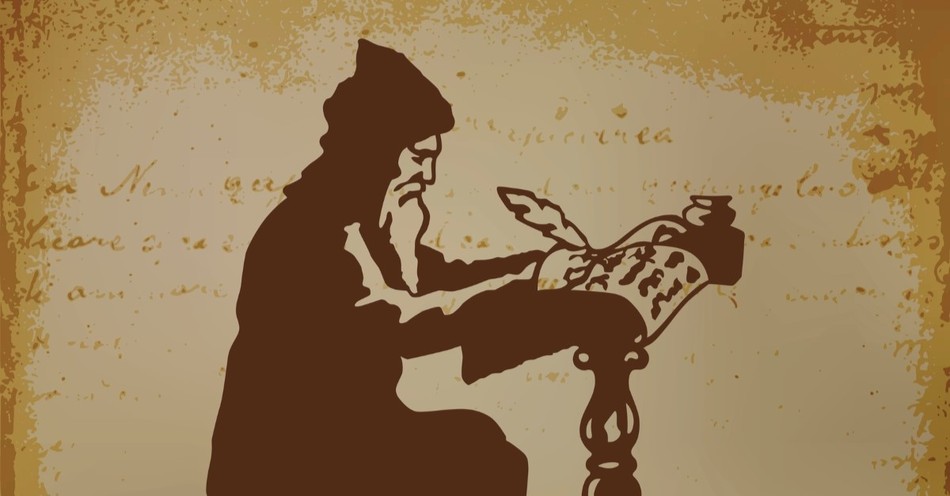The popularity and meaning of names have always been fascinating to me. As a writer and someone on my own spiritual journey, the meaning of names plays a big part in my story and stories. But why one name is popular or not is often subject to our culture. One place many parents-to-be go to search for baby names is the Bible. A handful of unique names sound like someone sneezed. Others—like David, Daniel, John, and James—have become mainstays. Occasionally in the Bible, some names repeat, like Joseph of Genesis and Joseph, the father of Jesus. One name that occurs several times is the name Asaph. It may not be at the top of this year’s baby name list, but no names are mentioned in the Bible without significance.
So how many people in the Bible are named Asaph, and what did they do to get mentioned in the scriptures?
How Many People in the Bible Are Named Asaph?
The Old Testament mentions three men with the name Asaph.
The first one we come across is Asaph the Psalmist in 1 Chronicles 6:39. Here, Asaph is listed as a Levite and one of the temple musicians David put in charge of music after the Ark of the Covenant came to Jerusalem (1 Chronicles 6:31).
The Second Asaph was a recorder in the court of King Hezekiah during (725–696 BCE). We find mention of him in 2 Kings 18:18 and 2 Kings 18:37.
The third Asaph was the Forest Keeper of King Artaxerxes when Nehemiah sought the king’s help rebuilding the Jerusalem wall and gates (Nehemiah 2:8).
But what do we know about these three men?
Who Was Asaph the Psalmist?
We are told in 1 Chronicles 6:39 that Asaph was the son of Berekiah, a member of the Levites. He is among those listed as chosen by David to be a minister of music at the Tabernacle until Soloman built the temple in Jerusalem.
In the first Chronicles, we are told that Asaph conducted with cymbals the music performed in the tent where the ark was housed (1 Chronicles 16:4-7, 1 Chronicles 16:37),
The psalmist Asaph is credited with writing Psalm 50 and Psalms 73-83.
The psalms attributed to Asaph fit into several genres: many are laments, while others are didactic psalms teaching lessons to younger generations. However, all these contain a host of emotions. Furthermore, when you look at the whole body of work, you can see a theme that contributing writer Mike Leake puts beautifully:
“It’s the people of God trying to hold onto the promises of God. It’s all about wrestling with the reality of living in a fallen world. At times it looks as if everything is upside down. It looks as if the enemies of God, and our enemies, are prospering. These psalms are cries given to God in those darker seasons. But they are profoundly hopeful. God is making all things right.”
Even as you continue to read through other psalms, you come across some being accredited to the “Sons of Asaph.” It is unclear whether these were psalms written by Asaph’s biological sons or if it was a group of men who studied under the original Asaph (1 Chronicles 20:14, and Ezra 2:41). Or rather an author with a similar style as Asaph—the way we refer to music by its style today (gospel, hip-hop, rock, etc.).
What King Had a Chronicler Named Asaph?
The next mention of the name Asaph is about a recorder or chronicler in 2 Kings 18:18. It is unclear in this passage whether the title of the recorder refers to a man named Asaph or the son of Asaph named Joah.
We know that during King Hezekiah’s rule, Asaph’s son Joah served as a court official. Specifically, Joah was a court official during the attack on Jerusalem by the king of Assyria, King Sennacherib.
The term recorder is also used in 2 Samuel 8:16 when referring to several of King David’s royal officials. The specific duties of the recorder are not clear. Dr. Thomas L. Constable noted in his Sonic Light Notes that a recorder possibly had the “responsibility for keeping the king informed, advising him, and communicating the king’s commands.”
King Hezekiah was king of Judah after his father, King Ahaz, died. King Hezekiah was 25 when he became king. Second Kings 18:5-6 says, “Hezekiah trusted in the Lord, the God of Israel. There was no one like him among all the kings of Judah, either before him or after him. He held fast to the Lord and did not cease to follow him; he kept the commands the Lord had given to Moses.”
Hezekiah is most known for his battle against King Sennacherib of Assyria. The Bible describes this as more than a physical battle: there was a siege and other military factors, but it was fundamentally a battle of faith (2 Kings 18-19). Hezekiah sought the wisdom of the prophet Isaiah, who prophesied that Sennacherib would fall (2 Kings 19:20-34). So when Sennacherib’s armies were laid out before Jerusalem, “an angel of the Lord went out and put to death a hundred and eighty-five thousand men in the Assyrian camp.” (2 Kings 19:35)
King Hezekiah’s faith and humility before the Lord in the battle between him and Sennacherib marked Hezekiah as a great king of Judah.
What King Had a Forest Keeper Named Asaph?
In Nehemiah 2:8, we are introduced to another man named Asaph. In this passage, Nehemiah requests help from King Artaxerxes, the fifth king of the First Persian Empire. Artaxerxes was the grandson of King Darius (mentioned in Daniel 6 as the one who threw Daniel into the lion’s den).
Nehemiah pleads to King Artaxerxes to allow him to return to Jerusalem so that he can rebuild it (Nehemiah 2:5). In this plea to the King, Nehemiah communicates what he will need from the King to accomplish this task that “can be nothing but sadness of heart (Nehemiah 2:2). In this plea to the King, Nehemiah shows him letters that would need to be sent to the governor os the Trans-Euphrates, to ensure Nehemiah’s safe travels and then a letter to Asaph, keeper of the king’s forest so that he will give wood from the king’s forests for the beams and gates of the city of Jerusalem. King Artaxerxes granted Nehemiah’s request giving him the letters he needed and the supplies from Asaph the forester, to rebuild Jerusalem.
Even though these three men share the same name, they each had a different role in the history of the Hebrew nation. They may not have long sections of the Bible written about them individually. Still, they encouraged God’s people to know, trust, and strengthen the work of God. It is a great reminder that even small actions of kindness or diligence have an impact.
I doubt Asaph the psalmist ever imagined that his psalms would still encourage and praise God thousands of years later. Or that Joah’s father Asaph would play a part in the defeat of the mighty Sennacherib. Or that a shipment of wood from Artaxerxes’ forest would bring protection and hope to an exiled people.
The legacy of our actions, even the small ones, we may not fully understand until we stand before the Lord in heaven.
Photo Credit: © Getty Images/daseugen

You can find out more about Valerie, her books, and her blog at www.valeriefentress.com.
This article is part of our People of Christianity catalog that features the stories, meaning, and significance of well-known people from the Bible and history. Here are some of the most popular articles for knowing important figures in Christianity:
How Did the Apostle Paul Die?
Who are the Nicolaitans in Revelation?
Who Was Deborah in the Bible?
Who Was Moses in the Bible?
King Solomon's Story in the Bible
Who Was Lot's Wife in the Bible?
Who Was Jezebel in the Bible?
Who Was the Prodigal Son?



.jpg)